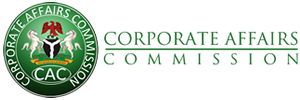Opening Remark By Prof. Adeyeye C. M
Director General NAFDAC
Antimicrobial Awareness Week (WAAW): Educate, Advocate, Act Now
Lagos, Nigeria
21st November, 2024.
PROTOCOL
It is my privilege to welcome you to this year’s World Antimicrobial Awareness Week (WAAW) titled; Educate. Advocate. Act Now. This week provides the Agency an opportunity to raise awareness about one of the most urgent global health challenges of our time, Antimicrobial Resistance (AMR), often referred to as the “Silent Pandemic.”
AMR is not a distant threat; it is already impacting our lives. Infections once easily treated with antibiotics, antivirals, and antifungals are now becoming increasingly difficult and sometimes impossible to manage. This growing resistance endangers decades of medical progress, potentially reversing our success in treating common infections, performing surgeries, and conducting medical procedures. The most pressing danger is the resistance found at birth in the new-born babies. The implication of AMR to human race is unquantifiable because it poses threat to man, animal, and plant (the environment).
NAFDAC, in her regulatory activities, have identified the danger posed by AMR and have taken due diligence to identify the likely causes which range from the effect of substandard and falsified products (SF), to abuse, misuse and irresponsible handling of microbial agents. The Agency, leveraging on her mandate as stated in NAFDAC Act Cap N1, LFN 2004, therefore developed the following regulatory mechanism to combat AMR.
- Review of the formulation of antibiotics: The Agency directed that all antibiotics formulations should not have more than two APIs. This directive is aimed at curbing the excessive use of antibiotics which may lead to the development of resistance.
- Ban the use of Antibiotics as growth promoter in Livestock production: This directive aimed at discouraging the use of antibiotics at sub-leather dose which is a very effective means of encouraging resistance by non-beneficial microbes. Alternative growth promoters such as organic acid, enzymes, probiotics, and prebiotics are cheaper and available for livestock production.
- Ban on the use of Colistin as coccidiostat (prophylaxis) in poultry and swine production: Hitherto, colistin is used as technical additives in poultry and swine feed. However, upon the re-classification by WHO, colistin is presently considered a last line of defence against human infection caused by multidrug resistant gram-negative organism.
- Ban on the use of antibiotics as mould inhibitor: In combating the growth of mould on animal feed and feedstuff, nutritionist use antibiotics to prevent mould growth thereby preventing the formation of toxins. The use of organic acid for this purpose is more effective and efficient.
In addition to the above, the Agency created an In-house AMR–OH committee that collaborate with other sister MDAs such as NCDC, Federal Ministry of Agriculture and Food Security, Ministry of Environment, VCN, NIAS, Ministry of Health and Social Welfare and foreign partners such as WHO, WOAH, RAGNA of EU among others in combating AMR. The Agency also step-up advocacy and enlightenment campaign on the danger of AMR to stakeholders, professionals, and farmers.
As we mark this important week, which has now become the Agency tradition, we recognize that AMR respects no borders. It is a global issue requiring coordinated national and international solutions. Together, we must commit to the responsible use of antibiotics and other antimicrobials, support ongoing research, and promote stewardship programs and policies to safeguard these essential resources for future generations.
NAFDAC’s regulatory efforts on antimicrobial resistance (AMR) include ensuring the quality and controlling the distribution of antimicrobial products, implementing stewardship programs to ensure responsible handling and use of antimicrobial agents, and conducting public awareness campaigns to educate on AMR risks. The Agency also gathers surveillance data on AMR trends to inform policy and aligns with global standards through international collaboration. These initiatives are crucial to preserving the effectiveness of antimicrobials agents and protecting public health.
Reflecting on the recent 79th United Nations General Assembly (UNGA) High-Level Meeting on AMR, world leaders reaffirmed their commitment to action. This includes a target to reduce the estimated 4.95 million annual deaths associated with AMR by 10% in 2030. Additional goals involve achieving 100% basic water, sanitation, hygiene, and waste management services in healthcare facilities and ensuring 90% of countries meet WHO’s minimum standards for infection prevention and control (IPC) by 2030.
In agriculture and animal health, the global community has committed to significantly reducing antimicrobial use in agri-food systems by 2030. This will involve prioritizing preventative measures and ensuring that antimicrobials are used prudently and responsibly within animal health.
I would like to extend special thanks to each of you for being here today, and to the Danish Embassy and Danish Veterinary and Food Administration (DVFA) for their support and collaboration in organizing this event.
In conclusion, as we begin this year’s World Antimicrobial Awareness Week, let us strengthen our collective commitment to raising awareness, enhancing prudent practices, and advancing impactful solutions against antimicrobial resistance. Together, we must act decisively across sectors, institutions, and communities to preserve the effectiveness of antimicrobials, protect global health, and secure a safer future for all. This week, let each of us reaffirm our roles in this global effort, championing responsible antimicrobial use and inspiring change that reaches beyond borders.
With that, I declare this program officially open.
Thank you for your commitment to tackling antimicrobial resistance.






